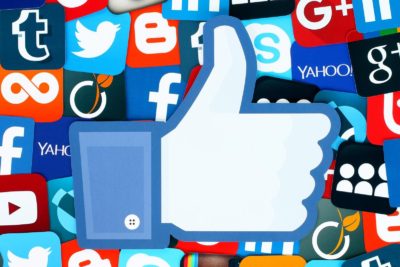Who Done it?
Luigi Zingales is an Italian born MIT doctorate, now a Professor at the University of Chicago. He is the author of two widely reviewed books: “Saving Capitalism from the Capitalists” and “Capitalism for the People: Recapturing the Lost Genius of American Prosperity”. This academic has published extensively in economics and financial journals. His writings have expressed a number of concerns about “Big Tech” to which I will try to do justice in a short three part series.
Once upon a time …
Beginning with the invention of the automobile, people were freed from the yoke of distance. A century after invention of the automobile another life changing technological revolution arrived. Enter the smartphone. Before the smartphone, people’s communication links were tethered to landlines. The introduction of the smartphone coupled with mobile communication and the Internet brought unprecedented access to information and the ability to share it.
At our fingertips today we have more advanced hardware and computing power than was used to take man to the moon and bring him home. We have access to more information in the palm of our hands than is in the world’s best library. Our power to communicate is greater than any propaganda machine ever dreamed of possessing. With those things said, an average individual cannot take advantage of these advances without the applications. That’s what companies like Apple, Google, Facebook, Twitter, and Amazon; what “Big Tech” does. They translate the power of the technology so the average user can take advantage of it.
All revolutionary changes in technology improve lives. But as Alfred Nobel learned, technological advances can have a dark side too. They also present challenges that offer an opportunity for abuse and reason for consideration of regulatory response. The Big Tech revolution poses challenges. The applications pose a direct challenge to free markets. Privacy is under direct and continuous attack. It is corrosive to both security and liberty. Wealth is being concentrated. Perceptions can be subtly adjusted and factual presentation skewed. In some ways its challenges are similar to those once addressed with anti-trust legislation; others are different and or new.
Position statement
We need to understand the dangers associated with new technology. It may be that be we will need to confront the implications of the technological change brings us. No one wants to go back to a world without smartphones any more than we want to return to a world with animal based transportation. The point is if or how we should manage new technology. We do not want it to become just an end in itself. We want it to help us, but we do not want it bind us; even with golden handcuffs.
As compared to autos
Comparing the auto revolution with the tech revolution has some value. The early auto industry was fragmented. There were about 3,000 companies in the United States. They each had the intent to produce cars or parts for them. There were still 44 independent car companies in the U.S. when the Great Depression hit. It wasn’t until the early 1980s that Chrysler, Ford, and General Motors emerged as the industry oligarchs.
By that time foreign cars were on the rise. Today, the market share of the top-selling car manufacturer in the U.S. is 18%, the largest two have 32%, and of the largest four 54%. What produced this fragmentation was geographical segmentation and product differentiation. There were high transportation costs and that favored local producers. Consumers preferred not only different colors but different models mitigating economies of scale as an advantage.
Here’s Big Tech
The history of Big Tech is very different in this respect. Ten years after the introduction of the iPhone, Apple’s market share as the largest smartphone seller in the U.S. is 38%. The market share of the largest two smartphone sellers 64%. The market share of the largest four is 90%. Market concentration has come far more quickly. Formation of oligarchs with wealth and power is concerning.
Looking at the application markets, the picture is more stark. The market share of Google, the largest search engine in the U.S., is 86%, the largest two 93% and of the largest four 99%. The market share of the largest social media platform in the U.S. is 60%, of the largest two 86%, and of the largest four 98%. Yes, it is difficult to measure the market share of products that are free. But even looking at a more substantive market representation, such as online advertising, Google and Facebook form a duopoly that commands market share of more than 80%. We need to recognize that.
